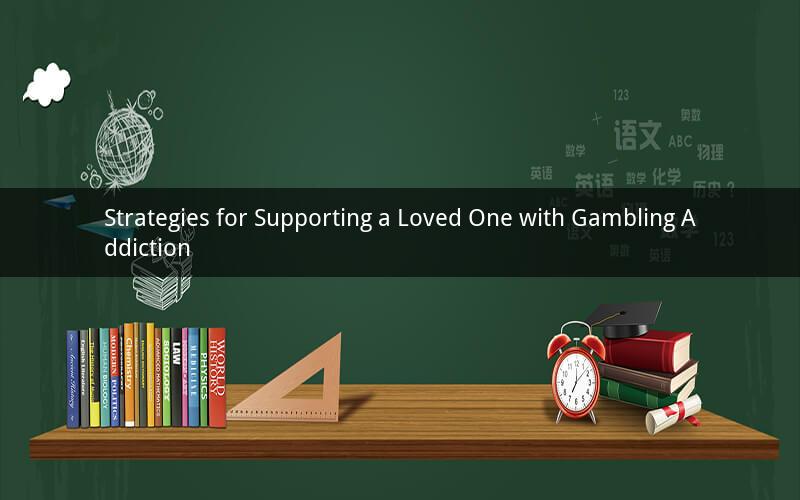
Introduction:
Gambling addiction is a complex issue that affects individuals and their families. When someone you care about is struggling with a gambling addiction, it can be challenging to know how to help them. This article explores various strategies to support someone with gambling addiction, providing insights into understanding the problem, offering empathy, and encouraging them towards recovery.
1. Educate Yourself:
Understanding the nature of gambling addiction is crucial in providing effective support. Educate yourself about the signs, symptoms, and potential consequences of gambling addiction. This knowledge will enable you to recognize the problem and address it more effectively.
2. Offer Empathy and Support:
One of the most important things you can do is offer empathy and support to your loved one. They may feel ashamed, guilty, or isolated due to their addiction. By expressing understanding and compassion, you can help them feel less alone and more willing to seek help.
3. Encourage Professional Help:
Encourage your loved one to seek professional help from a therapist or counselor specializing in gambling addiction. Therapy can provide them with the tools and strategies to overcome their addiction and develop healthier habits.
4. Create a Supportive Environment:
Supporting someone with a gambling addiction involves creating a positive and supportive environment. This includes:
a. Setting boundaries: Establish clear boundaries regarding financial and social activities related to gambling. Help them understand the importance of avoiding situations that may trigger their addiction.
b. Encourage healthy hobbies: Encourage your loved one to engage in non-gambling activities that promote well-being, such as exercise, hobbies, or socializing with friends and family.
c. Monitor their behavior: Keep an eye on their financial and social activities to ensure they are adhering to the agreed-upon boundaries and making progress in their recovery journey.
5. Financial Support:
Financial support can be a delicate matter when dealing with a gambling addiction. It's important to strike a balance between providing necessary assistance and enabling their addiction. Consider the following:
a. Help them manage their finances: Assist them in creating a budget and managing their finances responsibly. This can help them avoid falling back into old patterns.
b. Encourage financial counseling: If necessary, encourage them to seek financial counseling to address any financial difficulties caused by their addiction.
c. Avoid enabling: It's crucial to avoid enabling their addiction by providing money or covering their debts. This can perpetuate their addiction and hinder their recovery.
6. Encourage Participation in Support Groups:
Support groups, such as Gamblers Anonymous, can provide individuals with gambling addiction a sense of community and understanding. Encourage your loved one to participate in these groups to gain additional support and share their experiences with others facing similar challenges.
7. Be Patient and Understanding:
Recovery from a gambling addiction is a gradual process, and setbacks are common. Be patient and understanding throughout their journey. Celebrate their successes and offer comfort during difficult times.
8. Take Care of Yourself:
Supporting someone with a gambling addiction can be emotionally and physically taxing. It's important to take care of yourself to ensure you can continue providing support. Seek support from friends, family, or professionals if needed.
Conclusion:
Supporting someone with a gambling addiction requires understanding, empathy, and patience. By educating yourself, offering support, and encouraging professional help, you can help your loved one overcome their addiction and lead a healthier life.
Questions and Answers:
1. Q: How can I help my loved one recognize they have a gambling addiction?
A: Look for signs such as secretive behavior, financial difficulties, neglecting responsibilities, and preoccupation with gambling. Encourage them to seek professional help to confirm their addiction and discuss their concerns.
2. Q: What should I do if my loved one refuses to seek help for their gambling addiction?
A: Continue offering support and empathy. Express your concerns about their addiction and how it affects them and those around them. Encourage them to consider the consequences of their actions and the potential benefits of seeking help.
3. Q: How can I help my loved one manage their finances during their recovery?
A: Assist them in creating a budget, monitoring their expenses, and seeking financial counseling if needed. Encourage them to avoid accessing credit or borrowing money to support their gambling habits.
4. Q: Can I still be friends with someone who has a gambling addiction?
A: Yes, you can still be friends with someone who has a gambling addiction. However, it's important to set boundaries and prioritize their recovery. Offer support and encourage them to seek help, but also take care of yourself during this process.
5. Q: What can I do if my loved one relapses after seeking help for their gambling addiction?
A: Relapses are common in the recovery process. Offer empathy and understanding, and encourage them to seek additional support, such as attending more support group meetings or consulting with their therapist. Remember that relapse does not mean the end of their recovery journey.